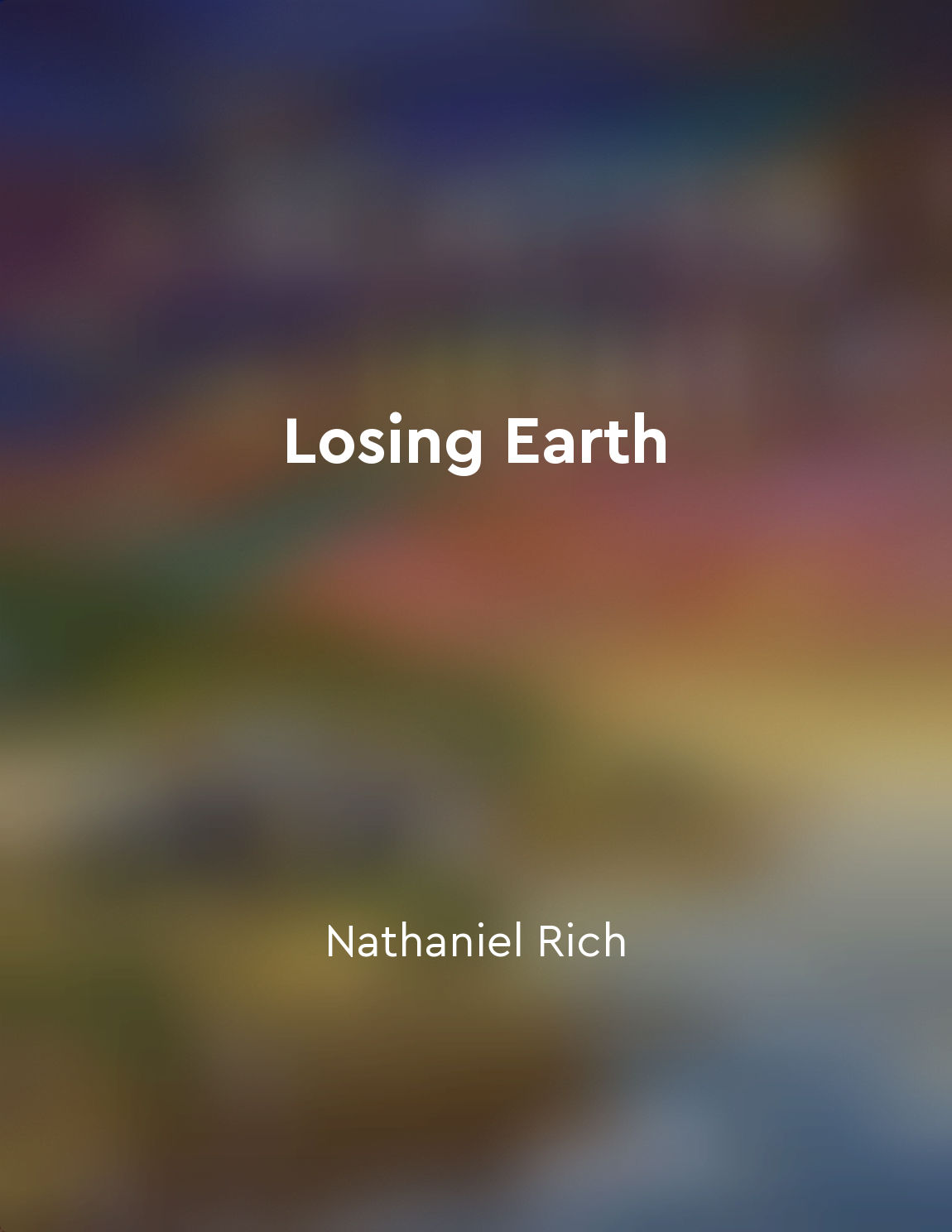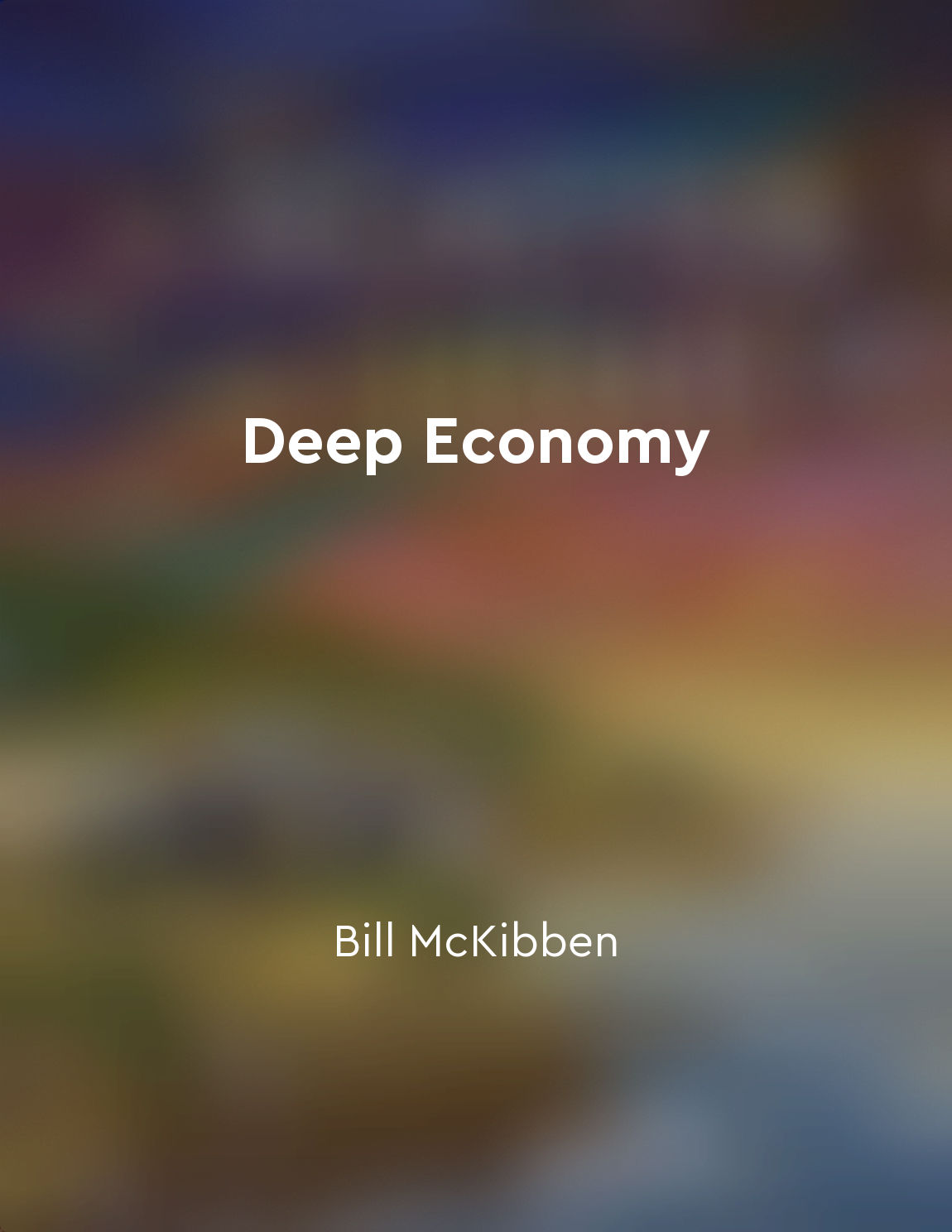Environmental destruction accompanies economic exploitation from "summary" of The New Confessions of an Economic Hit Man by John Perkins
The idea that environmental destruction goes hand in hand with economic exploitation is not a new one. Throughout history, we have seen countless examples of how the pursuit of profit has led to the degradation of our planet. This connection is particularly evident in the world of international finance and development, where corporations and governments often prioritize short-term gains over long-term sustainability. When economic hit men go into a developing country, their goal is to exploit its resources and labor in order to generate profits for their clients. This often involves massive infrastructure projects, such as dams, oil pipelines, and mines, which can have devastating effects on the environment. Forests are cleared, rivers are polluted, and ecosystems are disrupted, all in the name of progress and economic growth. The consequences of this kind of exploitation are far-reaching and often irreversible. Entire communities can be displaced, traditional ways of life can be destroyed, and precious natural habitats can be lost forever. And while the economic benefits may be felt in the short term, the long-term costs are often borne by those who can least afford it – the indigenous peoples, the marginalized communities, and future generations. Despite these grim realities, the cycle of economic exploitation and environmental destruction continues unabated. Governments and corporations continue to prioritize profit over sustainability, and the voices of those who speak out against this destructive cycle are often ignored or silenced. If we are to break free from this destructive pattern, we must fundamentally rethink our approach to development and prioritize the well-being of both people and planet. Only then can we hope to create a more just and sustainable world for all.Similar Posts
Policies promoting competition can enhance productivity and growth
Policies that encourage competition among firms can play a vital role in boosting productivity and fostering economic growth. W...
A focus on individualism can weaken social bonds
When individuals prioritize their own needs and desires above all else, social bonds can begin to deteriorate. In a society whe...

Path towards carbon neutrality requires systemic change
The path toward carbon neutrality is not a simple one. It requires more than just individual actions or small-scale solutions. ...

Investing in local businesses is beneficial
Investing in local businesses is an idea that has gained traction in recent years, as people begin to see the benefits of suppo...
We need a new economic model that values sustainability
The current economic model is based on the relentless pursuit of growth at all costs. This model is rooted in the belief that e...
Cultivating a culture of stewardship is important
Cultivating a culture of stewardship involves actively caring for and managing our environment in a sustainable way. It require...
Cultural shift towards ecological awareness
The concept of a cultural shift towards ecological awareness is a central theme in the exploration of human-nature relationship...

Gross domestic product is not a measure of wellbeing
The idea that gross domestic product (GDP) can accurately measure the wellbeing of a society is deeply flawed. GDP simply measu...
Cooperation among societies is necessary
The need for cooperation among societies is a fundamental principle that underlies the success or failure of human societies th...
Cultural factors influence development strategies
Cultural factors play a crucial role in shaping development strategies in a country. These factors encompass a wide range of el...
